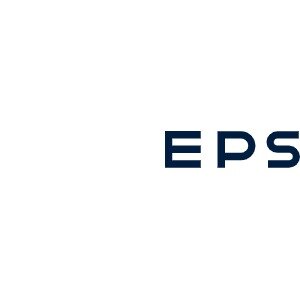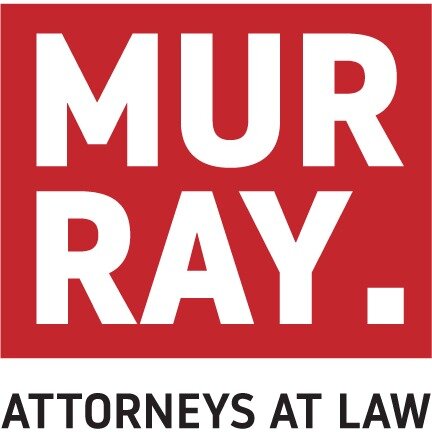Best Private Equity Lawyers in Curaçao
Share your needs with us, get contacted by law firms.
Free. Takes 2 min.
Or refine your search by selecting a city:
List of the best lawyers in Curaçao
About Private Equity Law in Curaçao
Private Equity law in Curaçao plays a crucial role in facilitating, regulating, and structuring investments made by private funds and investors into companies and assets. Curaçao has positioned itself as a leading international financial center in the Caribbean, offering a sophisticated legal framework for private equity activities. The jurisdiction is attractive to investors due to its flexible corporate structures, tax incentives, and robust legal infrastructure based on civil law, all of which cater to cross-border transactions and international investments.
Private equity vehicles in Curaçao often take the form of investment funds, limited partnerships, and private companies. Local authorities and regulatory bodies ensure that such entities comply with the relevant securities, anti-money laundering, and corporate governance rules. The island’s open economy and modern legislation make it a preferred destination for fund managers, high-net-worth individuals, and institutional investors seeking to pool capital and acquire interests in target companies or projects.
Why You May Need a Lawyer
Private equity transactions and structures can be complex, often involving significant amounts of capital and a myriad of legal considerations. Here are some common situations where you may require legal assistance in Curaçao:
- Establishing a private equity fund or investment vehicle to pool investor capital
- Negotiating terms of a buyout, merger, or acquisition involving a local company
- Structuring cross-border deals or joint ventures involving Curaçao entities
- Drafting and reviewing investor agreements, partnership deeds, and fund prospectuses
- Ensuring compliance with Curaçao’s financial regulations and anti-money laundering laws
- Tax optimization and advice on local and international tax obligations
- Resolving shareholder disputes or addressing breaches of fiduciary duties
- Protecting intellectual property and handling licensing agreements for portfolio companies
- Advising on exit strategies such as divestitures, IPOs, or secondary sales
Local Laws Overview
Curaçao’s legal system is based on Dutch civil law, with specific legislation tailored to its status as an autonomous country within the Kingdom of the Netherlands. Key aspects of local law relevant to private equity activities include:
- Corporate Structures: Curaçao permits various legal vehicles, such as the Naamloze Vennootschap (NV, similar to a public limited liability company), the Besloten Vennootschap (BV, similar to a private limited liability company), and limited partnerships. These entities offer flexibility in governance and capital structure, which are attractive for private equity deals.
- Financial Supervision: The Central Bank of Curaçao and Sint Maarten oversees fund registration and compliance with financial regulations, including anti-money laundering (AML) and know-your-customer (KYC) requirements.
- Investment Funds: Curaçao is recognized for its modern and business-friendly investment fund regulations, allowing exempt, private, and public funds to operate with varying degrees of regulatory oversight.
- Tax Regime: The jurisdiction offers various tax incentives such as reduced corporate tax rates and exemptions for international financial services companies, subject to meeting qualifying criteria. Curaçao also has tax treaties that can benefit international investors.
- Corporate Governance: Directors and management must adhere to statutory duties and fiduciary standards, with clear rules on disclosure, conflicts of interest, and reporting.
- Dispute Resolution: Curaçao courts have experience in handling complex commercial disputes and international arbitration clauses are enforceable under local law.
Frequently Asked Questions
What is private equity in Curaçao?
Private equity in Curaçao refers to investments made in private companies or assets, often using pooled funds from investors, to acquire, restructure, or expand businesses not listed on public stock exchanges.
What legal structures are commonly used for private equity in Curaçao?
Common structures include private limited companies (BVs), public limited companies (NVs), limited partnerships, and investment funds with tailored governance models.
Do private equity funds need to be licensed in Curaçao?
Many private equity funds in Curaçao must register with or be licensed by the Central Bank of Curaçao and Sint Maarten, depending on their structure and whether they offer units to the public or select investors.
What are the main regulatory bodies for private equity?
The primary regulator is the Central Bank of Curaçao and Sint Maarten, which oversees financial institutions, funds, and compliance with supervision and anti-money laundering rules.
Are there tax advantages for private equity investments in Curaçao?
Yes, Curaçao offers favorable tax regimes for investment funds and international financial services companies, including reduced or exempted tax rates, subject to specific legal requirements.
Can foreign investors participate in private equity transactions?
Yes, Curaçao is an open market for foreign investors, and there are no general restrictions on foreign ownership of private equity interests or local companies.
What disclosures are required when establishing a private equity fund?
Funds typically must provide offering documents, investor agreements, and periodic financial reporting as required by law and regulatory guidance.
How are disputes involving private equity resolved?
Most disputes are resolved through Curaçao’s court system, although arbitration and mediation clauses are common and enforceable under local law.
What due diligence is required for private equity transactions?
Legal and financial due diligence is crucial and usually includes reviewing compliance records, financial statements, governance documents, and contracts to assess risks.
Do I need a lawyer to set up a private equity fund in Curaçao?
While not strictly required by law, legal advice is highly recommended to ensure compliance, optimal structuring, and protection of the interests of all parties involved.
Additional Resources
- Central Bank of Curaçao and Sint Maarten - Regulates financial institutions and funds, issues licenses, and supervises compliance.
- Curaçao Chamber of Commerce & Industry - Provides company registry, resources, and guidance for business formation.
- Curaçao International Financial Services Association (CIFA) - Offers information and support for financial services professionals, including private equity managers.
- Local law firms specializing in corporate and financial law, with expertise in fund formation and private equity transactions.
- Government of Curaçao - Economic Affairs department can offer general information on investment incentives and regulations.
Next Steps
If you are considering engaging in a private equity transaction or setting up a fund in Curaçao, it is important to:
- Clearly define your investment goals and structure.
- Consult with a qualified lawyer specialising in private equity and corporate law in Curaçao.
- Gather all necessary documentation and information, such as business plans, investor details, and proposed structures.
- Understand the regulatory requirements applicable to your proposed activity, including licensing, disclosure, and compliance standards.
- Work with your legal team to prepare and file required applications, agreements, and compliance documents.
- Engage with local authorities, such as the Central Bank or Chamber of Commerce, as advised by your lawyer.
- Ensure ongoing compliance and schedule regular legal and financial reviews as your investment proceeds.
A professional legal advisor can help you navigate the complex legal and regulatory environment, protect your interests, and ensure your investment is set up to succeed.
Lawzana helps you find the best lawyers and law firms in Curaçao through a curated and pre-screened list of qualified legal professionals. Our platform offers rankings and detailed profiles of attorneys and law firms, allowing you to compare based on practice areas, including Private Equity, experience, and client feedback.
Each profile includes a description of the firm's areas of practice, client reviews, team members and partners, year of establishment, spoken languages, office locations, contact information, social media presence, and any published articles or resources. Most firms on our platform speak English and are experienced in both local and international legal matters.
Get a quote from top-rated law firms in Curaçao — quickly, securely, and without unnecessary hassle.
Disclaimer:
The information provided on this page is for general informational purposes only and does not constitute legal advice. While we strive to ensure the accuracy and relevance of the content, legal information may change over time, and interpretations of the law can vary. You should always consult with a qualified legal professional for advice specific to your situation.
We disclaim all liability for actions taken or not taken based on the content of this page. If you believe any information is incorrect or outdated, please contact us, and we will review and update it where appropriate.
Browse private equity law firms by city in Curaçao
Refine your search by selecting a city.













